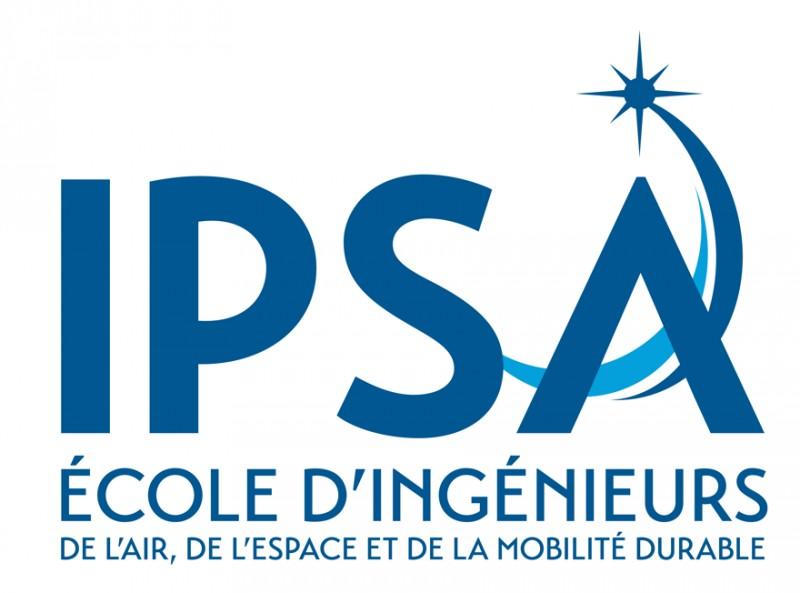Identification et caractérisation d'inhibiteurs des polyomavirus humains // Identification and characterization of human polyomavirus inhibitors
|
ABG-129369
ADUM-63032 |
Thesis topic | |
| 2025-03-11 |
Université de Picardie - Jules Verne
Amiens - France
Identification et caractérisation d'inhibiteurs des polyomavirus humains // Identification and characterization of human polyomavirus inhibitors
- Biology
virus BK, virus JC, néphropathie à BK virus, Leucoencéphalopathie multifocale progressive, antiviraux
BK virus, JC virus, BK virus-associated nephropathy, Progressive Multifocal Leukoencephalopathy, antivirals
BK virus, JC virus, BK virus-associated nephropathy, Progressive Multifocal Leukoencephalopathy, antivirals
Topic description
Les polyomavirus humains (HPyVs) regroupent plus de 10 espèces infectant 30% à 90% de la population humaine. Cinq d'entre eux causent des maladies chez les personnes immunodéprimées, dont la fréquence est susceptible de croitre avec l'augmentation du recours et de l'efficacité des traitements immunosuppresseurs. La plupart de ces maladies sont considérées comme rares mais elles ont un impact majeur sur la qualité et l'espérance de vie des patients avec une issue parfois fatale. Le polyomavirus BK est quant à lui devenu un problème majeur en transplantation rénale puisque sa réactivation entraine des néphropathies tubulo-interstitielles, conduisant fréquemment à une altération du greffon pouvant aboutir à sa perte fonctionnelle. Ces complications qui sont très contraignantes pour les patients transplantés génèrent en plus des surcoûts importants. Malheureusement, il n'existe à ce jour aucun traitement ni vaccin commercialisé contre ces virus. L'objectif de notre projet est donc de développer des modèles d'infection in vitro permettant des criblages à haut-débit rentables afin d'identifier de nouvelles cibles thérapeutiques et de nouveaux candidats-médicaments. A moyen terme, cela permettra aux patients touchés par ces maladies de mieux vieillir en améliorant leur qualité et espérance de vie.
------------------------------------------------------------------------------------------------------------------------------------------------------------------------
------------------------------------------------------------------------------------------------------------------------------------------------------------------------
Human polyomaviruses (HPyVs) encompass more than 10 species infecting 30% to 90% of the human population. Five of them cause diseases in immunocompromised individuals, the frequency of which is likely to increase with the growing use and effectiveness of immunosuppressive treatments. Most of these diseases are considered rare, but they have a major impact on patients' quality of life and life expectancy, sometimes with fatal outcomes. The BK polyomavirus has become a major problem in kidney transplantation since its reactivation leads to tubulointerstitial nephropathies, frequently resulting in graft impairment that can lead to its functional loss. These complications, which are very burdensome for transplant patients, also generate significant additional costs. Unfortunately, there are currently no commercially available treatments or vaccines against these viruses. The objective of our project is therefore to develop in vitro infection models allowing for cost-effective high-throughput screenings to identify new therapeutic targets and new drug candidates. In the medium term, this will allow patients affected by these diseases to age better by improving their quality of life and life expectancy.
------------------------------------------------------------------------------------------------------------------------------------------------------------------------
------------------------------------------------------------------------------------------------------------------------------------------------------------------------
Début de la thèse : 01/10/2025
WEB : https://agir.u-picardie.fr/programmes-recherche/virus-bk
------------------------------------------------------------------------------------------------------------------------------------------------------------------------
------------------------------------------------------------------------------------------------------------------------------------------------------------------------
Human polyomaviruses (HPyVs) encompass more than 10 species infecting 30% to 90% of the human population. Five of them cause diseases in immunocompromised individuals, the frequency of which is likely to increase with the growing use and effectiveness of immunosuppressive treatments. Most of these diseases are considered rare, but they have a major impact on patients' quality of life and life expectancy, sometimes with fatal outcomes. The BK polyomavirus has become a major problem in kidney transplantation since its reactivation leads to tubulointerstitial nephropathies, frequently resulting in graft impairment that can lead to its functional loss. These complications, which are very burdensome for transplant patients, also generate significant additional costs. Unfortunately, there are currently no commercially available treatments or vaccines against these viruses. The objective of our project is therefore to develop in vitro infection models allowing for cost-effective high-throughput screenings to identify new therapeutic targets and new drug candidates. In the medium term, this will allow patients affected by these diseases to age better by improving their quality of life and life expectancy.
------------------------------------------------------------------------------------------------------------------------------------------------------------------------
------------------------------------------------------------------------------------------------------------------------------------------------------------------------
Début de la thèse : 01/10/2025
WEB : https://agir.u-picardie.fr/programmes-recherche/virus-bk
Funding category
Funding further details
Financement d'une collectivité locale ou territoriale
Presentation of host institution and host laboratory
Université de Picardie - Jules Verne
Institution awarding doctoral degree
Université de Picardie - Jules Verne
Graduate school
585 Sciences, Technologie, Santé
Candidate's profile
- Formation Bac+5 de type Master 2 Recherche, avec une spécialisation en Virologie et un très bon dossier académique
- Compétences en culture cellulaire, biochimie et biologie moléculaire (transfection, cytotoxicité, production de virus recombinant, immunofluorescence, western blot, qPCR, séquençage, etc.)
- Compétences en analyse de données (Pack office ou équivalent, statistiques, etc.)
- Capacité à manipuler au laboratoire en autonomie et à acquérir de nouvelles techniques
- Capacité à assurer la veille bibliographique (Pubmed, etc.)
- Rigueur, réactivité, esprit de synthèse, capacité à travailler en équipe et à présenter l'avancée de ses travaux
- Capacité à communiquer les résultats et à adapter ses communications au public cible
- Bonnes compétences rédactionnelles indispensables (protocoles, rapports, synthèse…)
- Capacité à s'exprimer à l'anglais à l'écrit comme à l'oral (lecture et rédaction d'articles scientifiques, échanges avec des chercheurs anglophones)
- Master's degree (Bac+5 level) in Research, specializing in Virology, with a strong academic record. - Skills in cell culture, biochemistry, and molecular biology (transfection, cytotoxicity, recombinant virus production, immunofluorescence, western blot, qPCR, sequencing, etc.). - Data analysis skills (Office suite or equivalent, statistics, etc.). - Ability to work independently in the laboratory and to acquire new techniques. - Ability to conduct literature reviews (PubMed, etc.). - Rigorous, responsive, with a capacity for synthesis, ability to work in a team and present progress reports. - Ability to communicate results and adapt communications to the target audience. - Essential strong writing skills (protocols, reports, summaries, etc.). - Ability to communicate in English, both written and oral (reading and writing scientific articles, exchanges with English-speaking researchers).
- Master's degree (Bac+5 level) in Research, specializing in Virology, with a strong academic record. - Skills in cell culture, biochemistry, and molecular biology (transfection, cytotoxicity, recombinant virus production, immunofluorescence, western blot, qPCR, sequencing, etc.). - Data analysis skills (Office suite or equivalent, statistics, etc.). - Ability to work independently in the laboratory and to acquire new techniques. - Ability to conduct literature reviews (PubMed, etc.). - Rigorous, responsive, with a capacity for synthesis, ability to work in a team and present progress reports. - Ability to communicate results and adapt communications to the target audience. - Essential strong writing skills (protocols, reports, summaries, etc.). - Ability to communicate in English, both written and oral (reading and writing scientific articles, exchanges with English-speaking researchers).
2025-05-06
Apply
Close
Vous avez déjà un compte ?
Nouvel utilisateur ?
More information about ABG?
Get ABG’s monthly newsletters including news, job offers, grants & fellowships and a selection of relevant events…
Discover our members
 Aérocentre, Pôle d'excellence régional
Aérocentre, Pôle d'excellence régional  MabDesign
MabDesign  Nokia Bell Labs France
Nokia Bell Labs France  Généthon
Généthon  ADEME
ADEME  Ifremer
Ifremer  Institut Sup'biotech de Paris
Institut Sup'biotech de Paris  Tecknowmetrix
Tecknowmetrix  Groupe AFNOR - Association française de normalisation
Groupe AFNOR - Association française de normalisation  TotalEnergies
TotalEnergies  ONERA - The French Aerospace Lab
ONERA - The French Aerospace Lab  PhDOOC
PhDOOC  ASNR - Autorité de sûreté nucléaire et de radioprotection - Siège
ASNR - Autorité de sûreté nucléaire et de radioprotection - Siège  SUEZ
SUEZ  ANRT
ANRT  Laboratoire National de Métrologie et d'Essais - LNE
Laboratoire National de Métrologie et d'Essais - LNE  MabDesign
MabDesign  CESI
CESI  CASDEN
CASDEN
-
JobPermanentRef. ABG128969Institut Polytechnique des Sciences Avancées - IPSAToulouse - Occitanie - France

Enseignant-chercheur en Mécanique des fluides numérique
Open to all scientific expertisesAny -
JobPermanentRef. ABG129192Association Bernard Gregory (ABG)Paris (3ème) - Ile-de-France - France

Business Developer (F/H)
Open to all scientific expertisesAny







